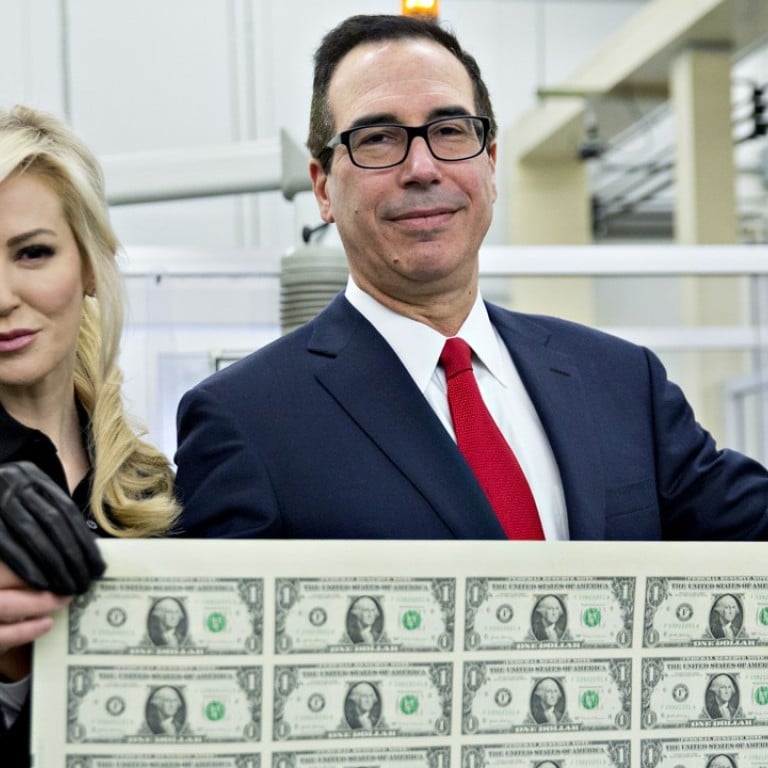
US Treasury Secretary Mnuchin’s ‘weaker dollar’ comment takes heavy toll on currency
Under pressure dollar has entered new bear phase, according to Daiwa analyst
The dollar wallowed near three-year lows against its peers on Thursday after caving on comments by US Treasury Secretary Steven Mnuchin that he welcomed a weaker currency, while the euro steadied ahead of the European Central Bank’s policy decision.
The single currency took a breather from an overnight rally, easing 0.1 per cent to US$1.2396. It had soared 0.9 per cent to US$1.2415 on Wednesday, its highest since December 2014.
The dollar slumped after Mnuchin told the World Economic Forum in Davos on Wednesday that “obviously a weaker dollar is good for us as it relates to trade and opportunities.” His comments were seen by markets as a departure from traditional US currency policy.
The greenback had already been on the defensive on trade protectionism worries fanned by US President Donald Trump’s decision to impose steep import tariffs on washing machines and solar panels earlier in the week.
“Last week the dollar was under pressure on expectations towards the ECB and Bank of Japan normalising monetary policy, but the bear trend has entered an entirely new phase after Mnuchin’s comments,” said Yukio Ishizuki, senior currency strategist at Daiwa Securities in Tokyo.
The US currency was little changed at 109.300 yen, after sinking 1 per cent to a four-month trough of 108.965.
The dollar index against a basket of six major currencies was at 89.307, having lost 1 per cent the previous day to go below 90 for the first time since December 2014.
The immediate focus was on the ECB’s policy setting meeting later on Thursday as markets look for any signs that the central bank is worried about the rapidly appreciating euro.
The euro zone economy may be roaring ahead though the expectation is that a rapidly strengthening euro may see ECB President Mario Draghi pour cold water on the view the bank is speeding towards an interest rate hike.
“Some players are likely to lighten their long euro positions if the ECB shows concern about the currency’s strength. But even such comments probably won’t be enough to halt ongoing dollar weakness,” Ishizuki said.
The Australian dollar traded at US$0.8054 after advancing 0.8 per cent overnight to a four-month high of US$0.8083.
The Canadian dollar was at C$1.2352 per dollar and in reach of C$1.2318, its strongest since late September touched overnight.
A rally in crude oil prices have given an extra lift to commodity-linked currencies like the Australian and Canadian dollars.
The New Zealand dollar was unchanged at US$0.7340, having pulled back sharply from a five-month high of US$0.7437 after data showed the country’s consumer prices rose at a slower-than-expected pace in the fourth quarter.

